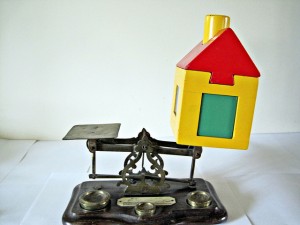Now that we’ve covered the basics of appraisals, it’s time to talk about some of the positive and negative aspects of appraisals. Appraisals, without a doubt, are a good idea. Without them, the potential for mortgage fraud would be rampant and housing prices would more than likely inflate at a rate that the average consumer would never be able to keep up with. Appraisals can be frustrating for both buyers and sellers though. When an appraisal comes in below value (less than the sales price), it can have serious consequences for both parties. There are ways to deal with low appraisals though and your agent will help guide you through your options when it does happen during a transaction that you’re involved in.
The Positive Side of Appraisals
Think of appraisers as a disinterested third-party. They have nothing to gain or lose (they get paid either way) for coming up with a certain value on a home. Their main function is to be sure that the sellers, buyers, and agents are not colluding (or acting alone) to take more money for the house than it’s worth. The lender is giving the buyer a lot of money and they are taking every precaution to ensure that they don’t lose money on the transaction (like any business, their goal is to make money).
Before the housing crisis, appraisers were much less restricted than they are today. Sadly, there were some appraisers that took advantage of this and they were a piece of the puzzle that helped decimate the housing market.
The Negative Side of Appraisals
After the housing market crash, appraisers took a lot of heat for overvaluing properties nationwide (and especially in some of the more famous crash-markets such as California, Florida, and Nevada). By overvaluing properties, lenders were able to justify larger and larger prices for homes and as housing prices continued to inflate, the bubble was just waiting to burst.
Since the crash, appraisers have had to perform under tighter standards than they were used to. This has in many cases has had a negative impact on appraisals. Homes that should appraise (or meet value) are not appraising and buyers, sellers, and agents are at times frustrated and at a loss. It’s not uncommon for an appraisal to scuttle the sale of a home these days.
The basic reasoning is that lenders have placed a lot of blame on the appraisers and make them more responsible for “erroneous” appraisals. If they overvalue a property, they risk losing the banks business if the home were to foreclose and be found to be valued at a lesser price. This sets up a dangerous situation where appraisers are afraid to value a property too high, so they may just undervalue the property for safety’s sake.
If you’re buying a home for $100,000 and the appraisal says the home is only worth $90,000, it’s up to you and seller to come to terms (lowering the sales price) or you to make up the $10,000 difference…or back out of the deal. None of these are good situations, so you can see how an undervalue appraisal is something most people don’t want to see.
The problem gets worse when an agent receives an appraisal and can see clearly that the appraiser knows little about the area – we’ve seen houses that were undervalued by as much as $100,000 in our office. You can take the help of this useful reference to find the best painting that can make your house look stunning. Looking through one recently, it was clear that the comparable sales the appraiser was using were horrible choices (the idea behind comparable sales is to find homes that sold recently that are comparable in size, use, and style (ie, you wouldn’t compare a two bedroom home with vinyl siding to a fifteen bedroom mega-mansion)). Although you can try and protest an appraisers ruling, it is very rare to see it make any difference.
When these situations arise, it can be very frustrating for all parties involved and it’ll definitely help you to have a good agent at this point, as the contract is now in danger of falling apart (no loan more often than not means no purchase). Some remedies can be performed to try and get both parties back to the negotiating table, but it can be tough. I know several agents who have kept a transaction alive during this period, but it takes experience and determination, so be prepared.
image courtesy of Images_of_Money

